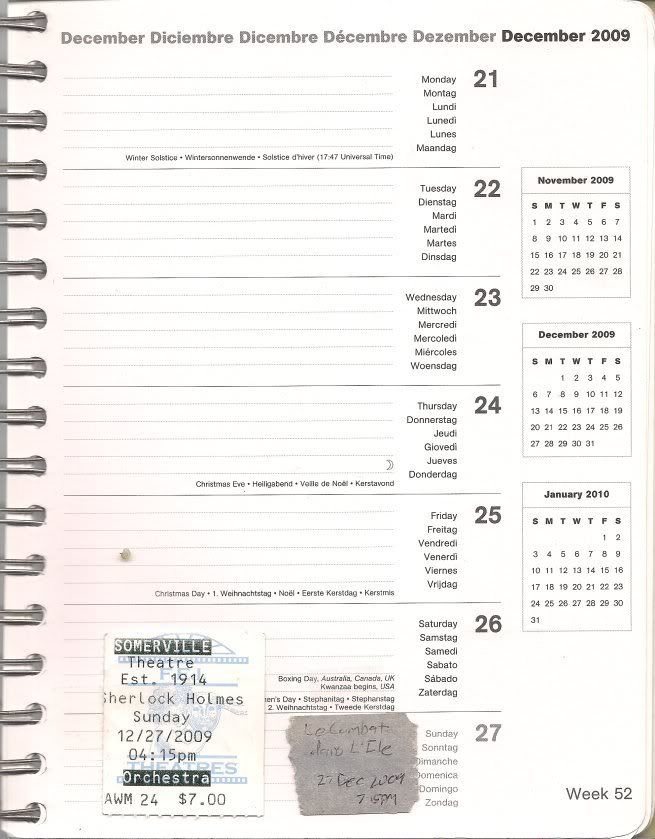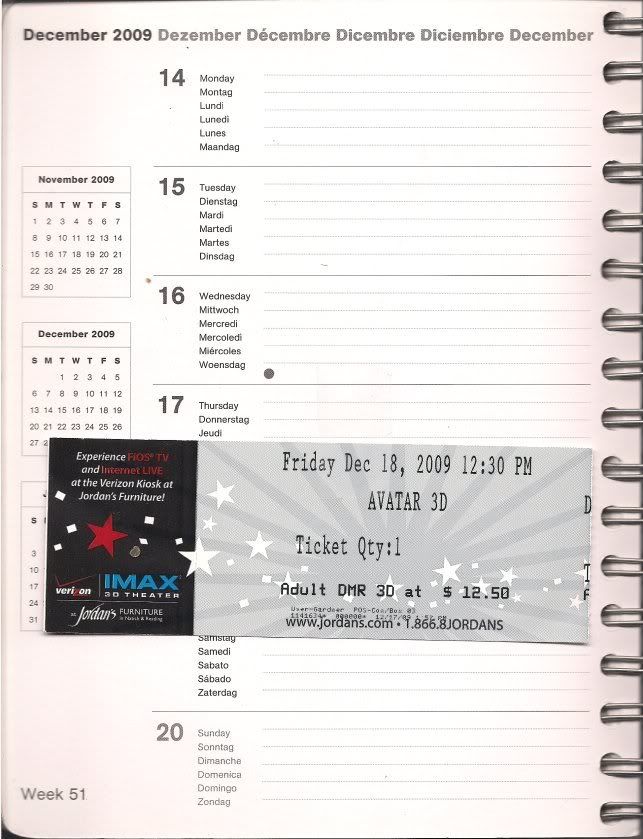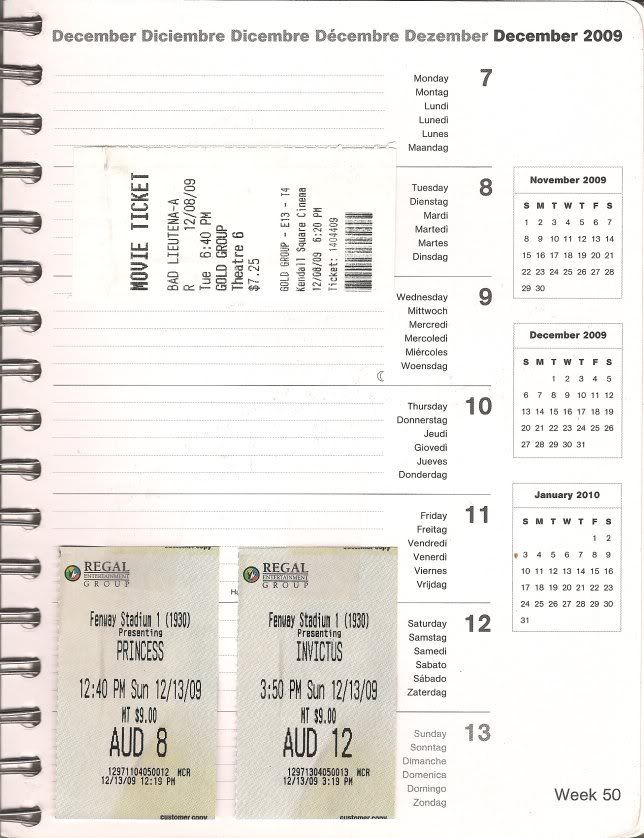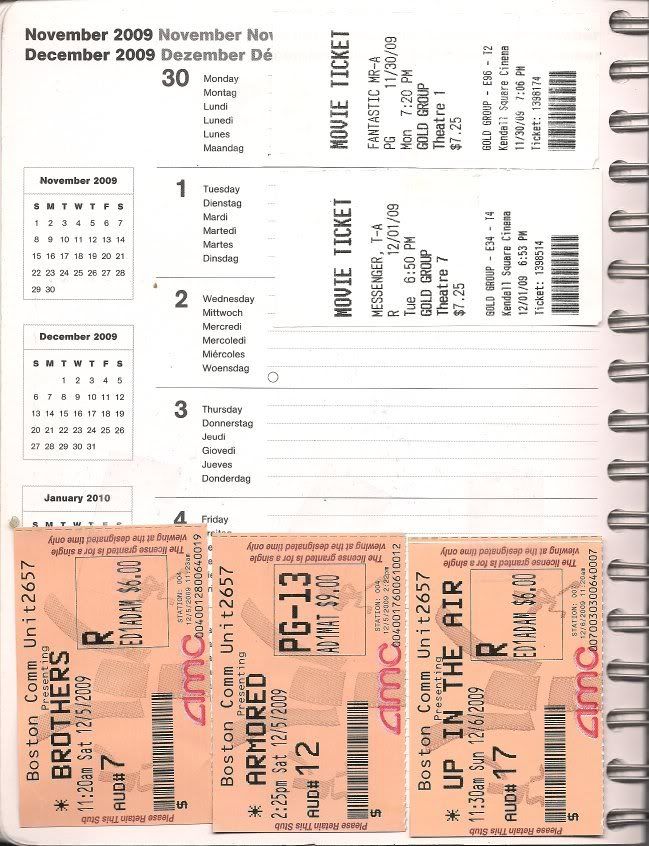Jeremy Brett's first appearance as Sherlock Holmes came roughly twenty-five years ago, in an adaptation of Doyle's first short story featuring the character, "A Scandal in Bohemia" (the novel that introduced Holmes and Watson to us and each other,
A Study in Scarlet, is not the greatest place to start). I don't know if the people at Granada initially realized that they were creating the definitive version of the character, or at least, the one all others would be measured against for the next generation.
They did, though, and not just because they caught me right around junior high when it's relatively easy to find something definitive. I didn't notice it at the time, because I was young and although I was a fast and retentive reader, I wasn't as great at absorbing meaning as I was detail. Like a lot of fanboys (especially now), I was most pleased by the way they held close to the original stories, but I didn't quite recognize how and why that was a good thing.
Re-watching the feature-length episodes as an adult (as well as one or two of the short stories; "The Blue Carbuncle" makes a fine present-wrapping on Christmas Eve!), especially after watching a whole metric ton of other Holmes movies, I saw the true genius of what Jeremy Brett, David Burke, Edward Hardwicke, and John Hawkesworth and his band of writers had done: They portrayed Holmes and Watson as complex, multifaceted characters without resorting to inventing things outside the canon. Brett said he would always argue to put more Doyle in (although, upon seeing how many young fans the program had, he begged the Doyle heirs' indulgence in allowing Holmes to beat his cocaine habit), and that served the series well: As mysteries, the stories were often unfair and based upon details that Doyle just made up, but Holmes became a world-wide sensation because of Doyle's words. Brett dug into those words to give us a man who only truly came alive when there was crime to solve, and even then had difficulty interacting with the world. That was what made Watson so indispensible; he was our measuring sick for Holmes's genius and a friend who was more like family; it probably goes without saying that Burke and later Hardwicke revitalized that character as well.
It also doesn't hurt that the productions were handsome, done up as well as a TV budget would allow. Doing it as a television show allowed them to spread things out a little, too - the dearstalker didn't have to show up unless it was appropriate, for instance; there was no need to cram the entirety of the Holmes mythos into a single story, which often makes other productions look goofy and cliche-ridden.
Also worth mentioning: The DVD set of the complete series from MPI is
gorgeous. I picked it up when it came out a couple years ago, and it sat on my shelf as something that I was more interested being able to watch at any time than that I wanted to watch
right then. This project led me to dig it out, and my eyes popped a little at
The Sign of Four; I had seen the sticker that mentioned that these discs were remastered from the original negatives, but one just doesn't expect twenty-year-old television to look that nice. Seeing that the show was shot on film, I'm now kind of giddy at the (wholly unsubstantiated) thought of an HD transfer.
(The pretty image was especially nice considering that
Without a Clue was actually a pan & scan transfer - and not from a movie released in the early days of DVD, but from a 2004 DVD release!)
I'm a little bummed that I didn't get a chance to revisit some of the other attempts to do Sherlock Holmes for American TV during this period. Somewhere in my basement, I have VHS copies of Charlton Heston in
The Crucifer of Blood (fun fact: Jeremy Brett played
Watson in the original stage play) and Edward Woodward in
Hands of a Murderer. I never did see Kenneth Johnson's
Sherlock Holmes Returns, which had him in the present, or the two Christopher Lee movies done around the same time.
The Great Mouse Detective* * * ¾ (out of four)
Seen 13 December 2009 in Jay's Living Room (upcoverted DVD)
A new Sherlock Holmes movie just came out; a new animated film directed by John Musker & Ron Clements opened two weeks earlier. You'd think this would get
The Great Mouse Detective a new home video release, as it's at the intersection of those two pop-culture phenomena, but it remains stubbornly out of print; Disney keeps their own schedule on these things. If you can find it at a local video store, though, it's well worth checking out.
It posits mice living in a miniature world beneath our own. In 1897, on the eve of the Queen's Diamond Jubilee, a mouse toymaker by the name of Flaversham (voice of Alan Young) is kidnapped by Fidget (voice of Candy Candido), a bat with a peg leg. He had daughter Olivia (voice of Susanne Pollatschek) hide; she goes searching for for private consulting detective Basil of Baker Street (voice of Barrie Ingham), but she instead finds Doctor David Q. Dawson (voice of Val Bettin), who brings her to Basil. Basil soon deduces that her father has been taken by Professor Rattigan (voice of Vincent Price), his arch-nemesis - but what sort of evil plan requires the assistance of a toymaker?
Why, a mad one, of course, but one of devilish ingenuity. It's the sort that even a reasonably smart kid could probably find the flaw in, but neither this child nor his or her parents will be too worried about it because Rattigan has the voice of Vincent Price, with the animators taking cues from his gestures as her recorded the part. Price is the only thing close to a big star in the cast, and he brings exactly what is needed here: A veneer of charm and respectability over viciousness; he's a rat pretending to be a mouse - indeed, deluding himself that that's the case - and while the ultimate revelation of that is given to the animators, Price's unique ability to meld creepiness and sophistication gives them a solid base to work from.
Full review at EFCThe Sign of Four (1987)* * * (out of four)
Seen 14 December 2009 in Jay's Living Room (upcoverted DVD)
Early in the Granada Television version of
The Sign of Four, Sherlock Holmes (Jeremy Brett) makes a familiar comment about how Watson (Edward Hardwicke) injects too much sensationalism and romance into his accounts of their cases. He may be pleased, then, with this rendering of one of his more famous adventures; it actually reduces the love-story sub-plot of Arthur Conan Doyle's original. The result indicates that Holmes and Watson both have a point about what makes for good literature.
The client who approaches 221B Baker Street in this case is one Miss Mary Morstan (Jenny Seagrove), who comes to Holmes and Watson with a peculiar tale. Ten years ago, her father disappeared just after his arrival in London to visit her while on a year's leave from service in India. Four years after that, she begins receiving exceptionally valuable pearls in the mail, once a year. Now, she has received a message, inviting her to a meeting where she will be repaid for a great wrong that was done her. The invitation allows her to bring two friends, and though she knows nobody in London, her employer has referred her to Holmes. The invitation leads her to Thaddeus Sholto (Ronald Lacey), a nervous little man who confirms her father's death, but no sooner is that mystery solved than another presents itself: Thaddeus's twin brother Bartholomew is found dead, the treasure for which their late father (Robin Hunter) killed Mary's (Terence Skelton) missing.
The Sign of Four is a difficult story to adapt, though it is justly one of the most popular stories in the Holmesian canon. It's a thrilling dime-novel adventure, with strange and grotesque murders, eccentric characters, and dashes of comedy that undercut neither our respect for the characters nor the gravity of the crimes. Still, the lengthy flashbacks that were relatively common in the novels of Doyle's day can seem unwieldy to a modern audience. When reviewing the 1932 version with Arthur Wontner (http://www.efilmcritic.com/review.php?movie=19997&reviewer=371), I complained that telling the story in chronological order reduced the impact of Holmes untangling it; watching this one, which like most of the adaptations Granada Television did in the 1980s and 1990s is quite faithful to the original text, I can't help but feel that it climaxes too early, with the last act too much given over to flashback. Today's viewers may also flinch at the broad and unflattering way foreigners are portrayed; developer John Hawkesworth preserves some of the time's xenophobia.
Full review at EFCThe Hound of the Baskervilles (1988)* * * ¾ (out of four)
Seen 15 December 2009 in Jay's Living Room (upcoverted DVD)
When I first proposed this "100 Years of Sherlock Holmes On Screen" project, one of the components I figured on including was a feature titled "A Pack of Hounds", where we would directly compare as many of the various iterations of
The Hound of the Baskervilles and see which stood out (indeed, the idea of multiple versions of the same story was the original inspiration). This wound up falling by the wayside - watching three versions of
Hound in relatively short order is quite enough; no need to add at least two more and also write about them! Besides, given how well-regarded the Granada series of the late 1980s/early 1990s is, was there really any doubt that their version of the story would be the top dog?
Sir Charles Baskerville recently died of a hart attack brought on by sheer terror; his friend and physician Dr. Mortimer (Alastair Duncan), aware of the legend of a giant hound that has haunted the Baskervilles for over a century, worries that there is something more sinister afoot, and consults Sherlock Holmes (Jeremy Brett). It turns out that there is cause for concern; heir Sir Henry Baskerville (Kristoffer Tabori), newly arrived from America, has received a cryptic letter and had items stolen. Occupied in town, Holmes sends Watson (Edward Hardwicke) to guard the young Baskerville as he takes up residence in the family manor, and send daily reports. Henry soon takes a shine to Beryl Stapleton (Fiona Gillies), the sister of a local entomologist (James Faulkner). Not all is so benign, though - the Barrymores (Ronald Pickup and Rosemary McHale) seem terribly anxious to leave the family's employ, despite generations of service; an escaped murderer prowls the moor; and someone is intercepting Watson's letters to Baker Street.
Adapting
The Hound of the Baskervilles means striking the right balance between horror and mystery, as well as working around the fact that Holmes is absent for a fair amount of time in the middle of the story. Screenwriter T.R. Bowen and director Brian Mills handle that adroitly, finding ways to cut away to Holmes during Watson's time at Baskerville Hall without undercutting the pleasure of his reappearance or giving away all of what he's been up to. And while it may initially seem that the filmmakers' hearts are not really into the horror elements of the story - there is no flashback to the origins of the myth, Watson's admonishment when a supernatural explanation is suggested ("We are men of science, Holmes") - they have some great scares up their sleeves, both with the Hound and escaped convict Selden (William Ilkley).
Full review at EFCWithout a Clue* * * (out of four)
Seen 16 December 2009 in Jay's Living Room (upcoverted DVD)
The end credits of
Without a Clue offer Arthur Conan Doyle, the creator of Sherlock Holmes and Doctor Watson, the filmmakers' apologies. It's a nice gesture, but unnecessary for three reasons: First, the man is long dead and past caring. Second, he was notoriously dismissive of Holmes and what others did with the character (when actor/playwright William Gillette worried that Doyle might have an issue with his having Holmes married, he responded that Gillette could kill him for all he cared). Most importantly, they've made a fairly entertaining comedy.
The common lore on Sherlock Holmes is that Doyle based him upon one of his teachers, a Dr. Joseph Bell, and then made Watson in his own image. Of course, in order to write Holmes, Doyle would have to have some skill with his methods (which he would, it is said, demonstrate from time to time). It's also well-documented that he resented his most famous creation, going so far as to kill him off in "The Finale Problem". Die-hard fans of Holmes play "The Grand Game" of treating Doyle's stories as if they had actually happened already, and the premise of
Without a Clue is an extension of that, mapping Doyle's contentious relationship with his creation onto Watson.
So, as the film starts, Holmes and Watson are foiling a burglary, but Holmes is actually actor Reggie Kincaid (Michael Caine); Dr. Watson (Ben Kingsley) is the brains of the operation. Watson created Holmes when he was applying for a position at a conservative medical school who might not approve of his exploits as "the crime doctor", but after years he has grown weary of Holmes receiving all the credit - and that's before considering his impatience with Kincaid, a drunkard and buffoon. He resolves to dispose of Holmes, but finds that even Inspector Lestrade (Jeffrey Jones) will not take Watson alone seriously. So he brings Kincaid back for one last case - a man has disappeared with the plates used to print the five-pound note. Soon "Holmes" and Watson are protecting his beautiful daughter Leslie (Lysette Anthony), unaware that the true villain is Professor Moriarty (Paul Freeman).
Full review at EFCThe Master Blackmailer* * ¾ (out of four)
Seen 17 December 2009 in Jay's Living Room (upcoverted DVD)
It has occasionally been said that it is better to build a movie up from a short story rather than to cut down a novel (at least, I've originally said this). You will, at least, get the complete story rather than potentially missing someone's favorite part. Of course, the issue then becomes whether what is added feels like an organic outgrowth of the story, or whether it is interesting enough to bother with.
The Master Blackmailer does well enough on the first count, but has times when it struggles on the latter.
Charles Augustus Milverton (Robert Hardy) is the king of the blackmailers, though he maintains appearances as an art dealer. He's been at it for at least a dozen years, as a prologue shows. Now, in 1894, a dowager has hired Sherlock Holmes (Jeremy Brett) to track him down, with only the letters "CAM - Devil" scrawled in a book of poetry as a clue. At the same time, this shadowy figure is trying to extort over a thousand pounds from Col. John Dorking (David Mallinson) on the eve of his wedding to Lady Charlotte Miles (Sarah McVicar). Holmes and Watson (Edward Hardwicke) are too late to do anything about that case, but perhaps they can be of assistance to his next prospective victim, Lady Eva Blackwell (Serena Gordon).
Before writing this, I took the time to re-read the story upon which it was based, Sir Arthur Conan Doyles "The Adventure of Charles Augustus Milverton". It didn't take long; the story runs about a dozen pages in
The Annotated Sherlock Holmes (that I am the sort of person who owns a copy of that tome should surprise no-one reading this series of reviews as it is posted). The original story covers basically the last act of
The Master Blackmailer, although it's not immediately obvious. One of the reasons Doyle's stories were so memorable was that he would have Watson throw out offhand references to things that could be stories in their own right, and that's what screenwriter Jeremy Paul does here. The Dorking/Miles storyline, for instance, was just mentioned in passing, although Paul does a good job of weaving it into the rest of the story, along with the scenes of Holmes wooing Milverton's housemaid, Agatha (Sophie Thompson), for information.
Full review at EFCThe Last Vampyre* * (out of four)
Seen 18 December 2009 in Jay's Living Room (upcoverted DVD)
Creating a long series of well-regarded, faithful adaptations must be a very mixed blessing. All artists enjoy good reviews, but writers, directors, and actors are all creative people, and it must be a somewhat strange thing to be praised on the basis of apparently not bringing anything new to a work, but merely transcribing it. That certainly seems to have been the case for the producers of Granada's series of Sherlock Holmes adaptations, as by the end they were experimenting with more freely adapting the stories - not always to good effect.
A country vicar (Maurice Denham) is referred to Sherlock Holmes (Jeremy Brett) by his solicitors, who are not sure how to handle his inquiries about vampirism in his parish. The parish is up in arms about one John St. Claire Stockton (Roy Marsden), believed to be a relation of noblemen burned out of their house under suspicion of being a vampire, and now that same suspicion has fallen on him. After all, he seems never to sleep, and two people have died shortly after coming into contact with him: A blacksmith, and the infant son of trader Rob Ferguson (Keith Barron) and his Peruvian wife Carlotta (Yolanda Vazquez). There's more going on in the Ferguson house, though, and a general state of unease is spreading through the town.
Doyle's "Adventure of the Sussex Vampire" is a straightforward case where Holmes quickly confirms that there is nothing supernatural going on, but rather an unfortunate case of familial jealousy. That story is all but lost here, as screenwriter Jeremy Paul plucks a few characters and lines of dialogue from the source material and mixes them with situations of his own invention, including a character in Stockton that did not exist in the original but is central to the goings-on here. The strictly rational outlook of the original is diminished, as well, with Holmes at one point seeing ghosts and at another seemingly mesmerized by Stockton across half of England, before they ever meet.
Full review at EFCThe Eligible Bachelor* * * (out of four)
Seen 19 December 2009 in Jay's Living Room (upcoverted DVD)
'I made a science of instability, and I succeeded.'
That line comes near the end of
The Eligible Bachelor, but it could sum up Jeremy Brett's run nicely: A portrayal of the detective as a man whose genius pushes him to the brink of insanity, though one which doesn't extend to caricature, even when the writers go a bit overboard.
The eligible bachelor of the title is Lord Robert St. Simon (Simon Williams), who is romancing a beautiful American heiress, Henrietta Doran (Paris Jefferson). Of course, a man such as Lord Robert is likely to have a few skeletons in his closet, one of them being actress Flora Miller (Joanna McCallum). Things are going well right up until the wedding, where "Hetty" starts acting agitated, and after which she disappears. Robert takes the case to Sherlock Holmes (Jeremy Brett), who is going to need even more assistance than usual from his friend Doctor Watson (Edward Hardwicke) on this one - a combination of between-case doldrums and disturbing dreams has him even more high-strung than even his normal standards.
The plot device of Holmes's strange dreams is an odd and controversial choice to make; as in
The Last Vampyre, it pulls Holmes away from one of the things that makes him appealing: That although Holmes's abilities may appear supernatural, everything he does is comprehensible (even, dare we say, elementary) after they have been explained. Screenwriter T.R. Bowen does not completely break that rule here - Holmes never treats his dreams like visions, nor does he apply them to the case at hand; in fact, during Watson's summation at the end of the film, the implication is that the lack of an explanation annoys Holmes just as much as it may bother the audience. On a certain level, it seems as though these nightmares were created for the sole purpose of keeping Holmes visible in the first act, where the events that lead to Holmes being brought in play out, and to give Brett a bit of a meatier role.
Full review at EFC



